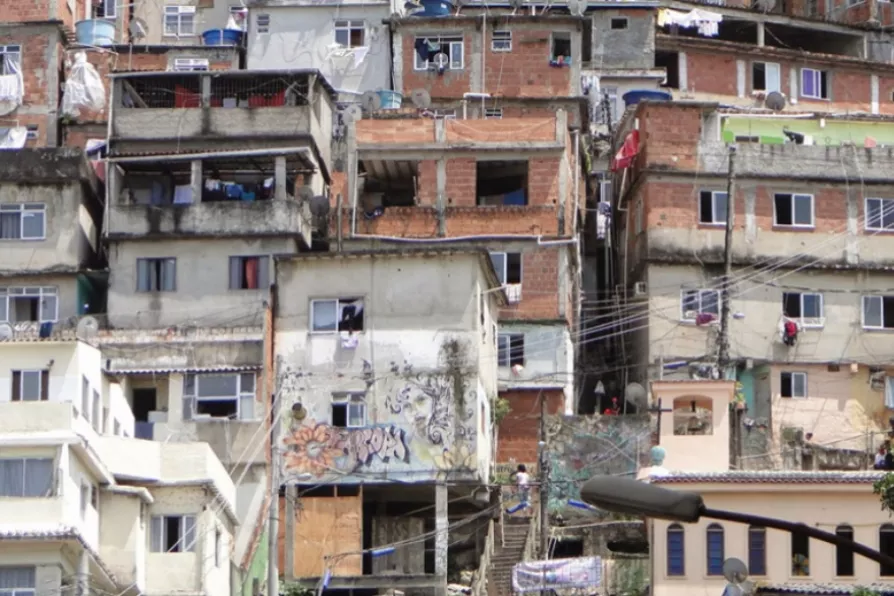SIMON PARSONS applauds an original, visual and movement-based take on the birth and death of a relationship
Revelatory depiction of life in Buenos Aires slum is a tragi-comic triumph

 A South American shanty town
[Leon Petrosyan/Creative Commons]
A South American shanty town
[Leon Petrosyan/Creative Commons]
Slum Virgin
by Gabriela Cabezon Camara
(Charco Press, £9.99)
IN THE El Poso slum of Buenos Aires things are starting to change for the better. Its inhabitants organise in special committees, they create a system of canals filled with large and glistening carp to eat, they grow their own vegetables and they are learning to be self-sufficient.
El Poso (“The Sediment”) is turning into a tiny utopia and all of this is apparently thanks to a strange cement Virgin Mary statuette — the Slum Virgin — that sends divine messages to the people through a “medium,” the transvestite prostitute Cleo, who renounces life on the game to try to save his shanty-town community from impending destruction.
Similar stories

Peter Mitchell's photography reveals a poetic relationship with Leeds

Ben Cowles speaks with IAN ‘TREE’ ROBINSON and ANDY DAVIES, two of the string pullers behind the Manchester Punk Festival, ahead of its 10th year show later this month

This is poetry in paint, spectacular but never spectacle for its own sake, writes JAN WOOLF

ANDY HEDGECOCK relishes two exhibitions that blur the boundaries between art and community engagement










